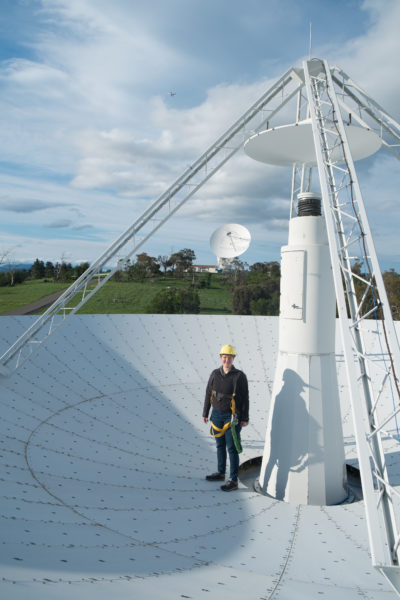The Royal Society of Tasmania
presents
the Innaugral Peter Smith medal lecture by
Dr. Lucia McCallum
on Tuesday, 1 October 2019
at the Royal Society of Tasmania lecture room,
Customs House, Dunn Place, Hobart
The Dish redux – from the Apollo Mission to Earth surveying
Whether we are talking about climate change, sea level rise or the exploration of natural resources, “Earth measurement” and “precise positioning” have long found their way into our daily vocabulary. Fundamental to all those applications is an accurate, stable, and accessible coordinate system. Today’s best coordinate reference is generated from a multitude of modern Earth surveying techniques, one of them making use of black holes as the most stable pillars of the Universe.
The Hobart radio telescope, once designed as part of the Apollo Missions, nowadays plays a crucial role to measure our dynamic Earth. This is a diverse task of managing old and new technology, establishing truly global collaboration, and performing innovative research delivering encouraging results.
Dr Lucia McCallum is a post-doctoral Research Fellow at the Physics Department of the University of Tasmania. She is a geodesist – or Earth surveyor – with a proven record in the Very Long Baseline Interferometry (VLBI) technique. Her main research interests are global reference frames, Earth rotation, and the emerging field of space ties.
Following a surveying degree, she performed her doctoral studies in Geodesy at TU Wien, Austria. Her first post-doc appointment led her to Hobart in 2014, where she now has settled with her young family. In 2015, she was awarded the Erwin-Schrödinger Fellowship by the Austrian Science Fund, and in 2017 she received a Discovery Early Career Research Award (DECRA) from the Australian Research Council. She is now the winner of the inaugural Peter Smith Medal.

